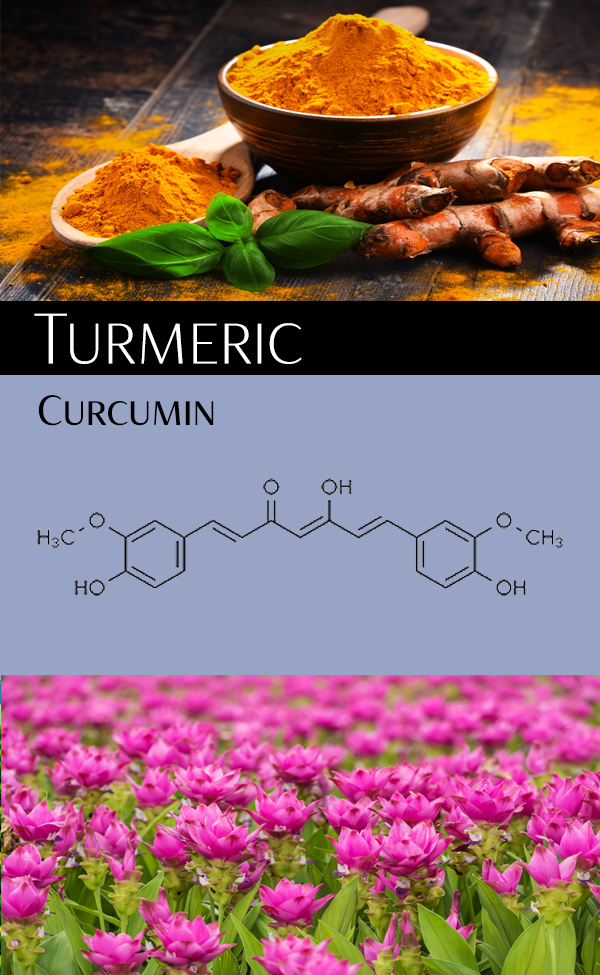
Turmeric
Turmeric is a flowering plant that is a relative of Ginger and cultivated for its rhizome. It has been used for centuries by Ayurveda and Traditional Chinese Medicine practitioners for a number of ailments. Turmeric has been used as a spice, a dye and for its health benefits. Curcumin is the active element and gives Turmeric its characteristic bright orange hue. It is well known as an anti-inflammatory and antioxidant.
One of the keys to tapping into the health benefits of Turmeric may be taking it with Black Pepper that has been shown to increase Curcumin absorption by an astonishing 2000%. Turmeric is also known to have synergic relationships with Frankincense, Green Tea and Black Raspberry.
Supporting Research
Click the links below to access studies on Turmeric and its active ingredient Curcumin.
- Curcumin and Its Derivatives As Anti Cancer Agents
- Curcumin: A Review of It's Effects on Human Health
- Chemotherapy-Induced Peripheral Neurotoxicity
- Effects of Curcumin and Its Different Formulations in Preclinical and Clinical Studies of Peripheral Neuropathy and Postoperative Pain
- Effect of Curcumin on Diabetic Peripheral Neuropathic Pain
- Potential in Curcumin in Skin Disorders